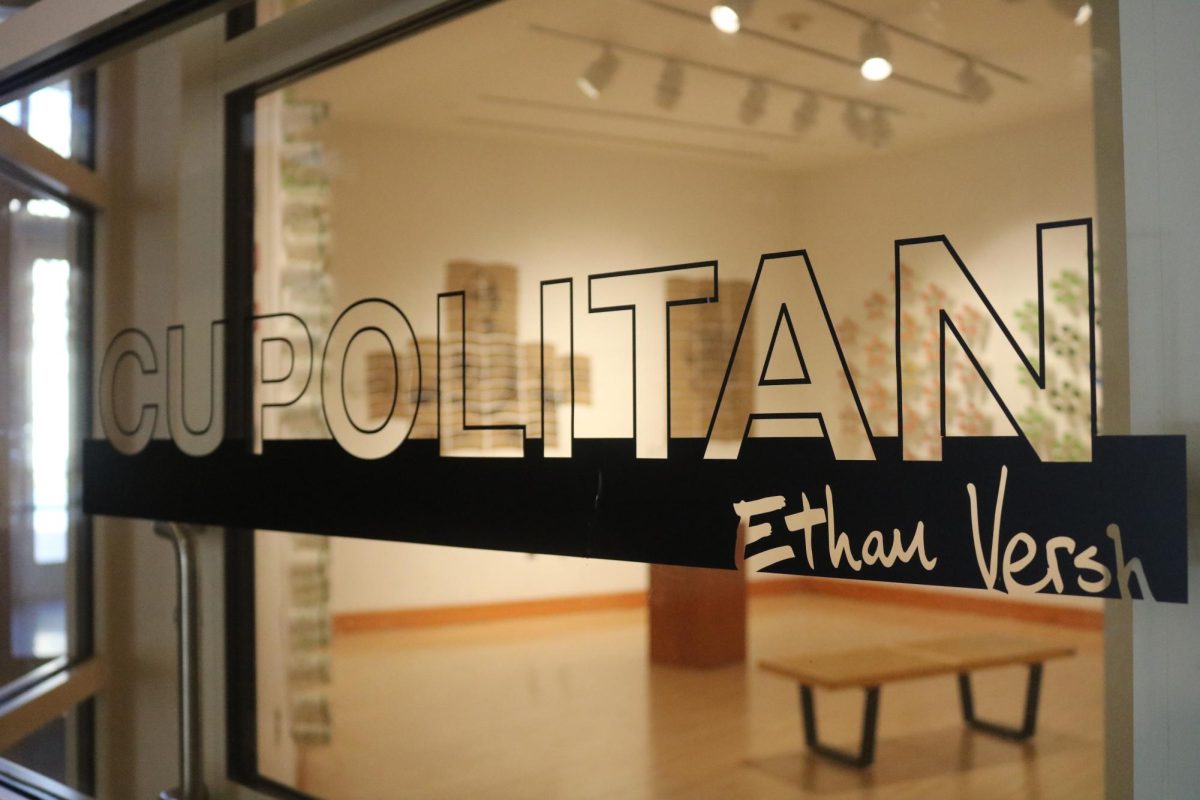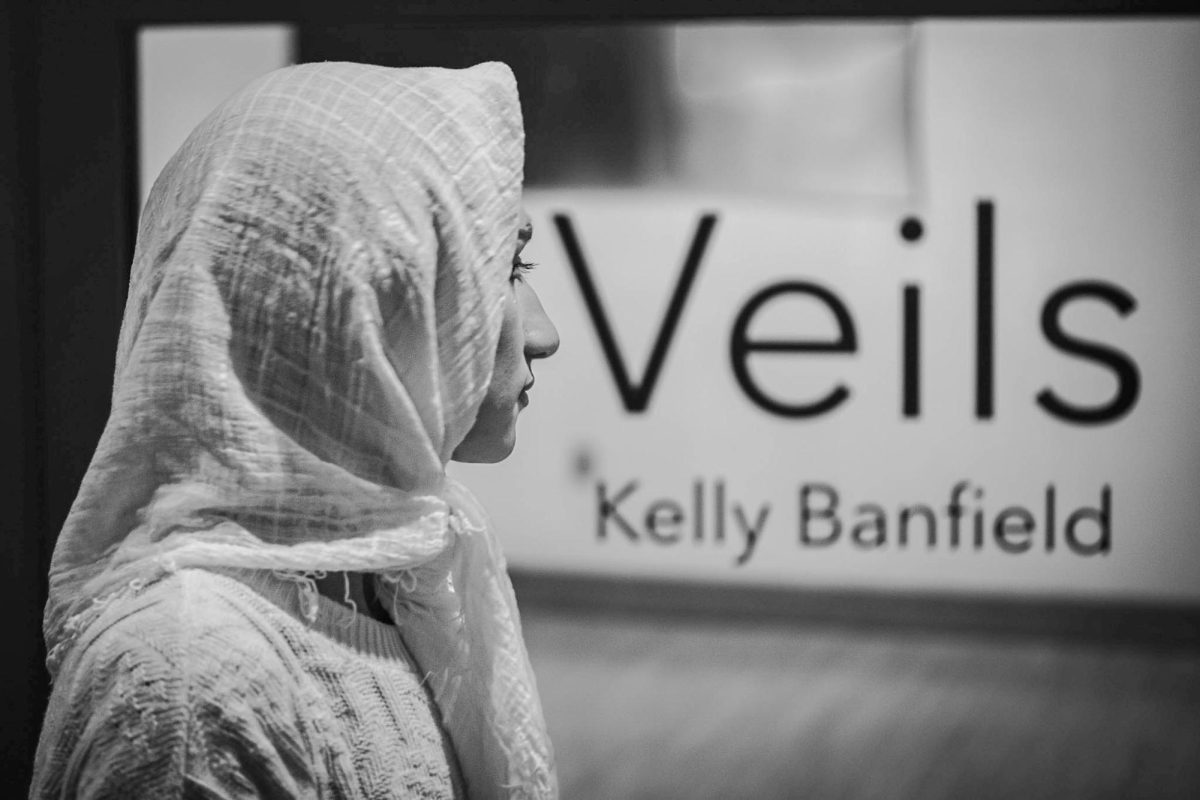
Fall break concluded a week ago, and many of us took off our Grinnell student hats in order to don a different hat — the cap of a tourist. Curious about digging underneath the fun surface of tourism to see what political implications lie below, The S&B’s Caryn McKechnie sat down with Professor Kesho Scott, sociology, who teaches a course called “The Sociology of Tourism.” Read on to see the result of her curiosity journey …
The S&B: Why do you teach a course on the sociology of tourism?
Professor Kesho Scott: Why do I do that? Why did that become a subject of a subdiscipline of sociology? Two reasons. One, because it’s people being involved in group activities and, second, because it’s now transnational. So there are some facts about tourism that we have to start from. One, it is the largest commercial-service industry in the world. Eighty percent of the people that are involved in tourism are women, which are generally the most disenfranchised, economically and politically, around the world. And the third thing, that tourism does not necessarily benefit the country that it finds itself in.
In what way does tourism not benefit the country it’s in?
So, for example, the 31 million people who visit Disneyland, which is the number one tourist site in the world, means that that is income that comes to the United States; but, when people go to Myanmar, and they’re seeing the new land, the tourist industries are often owned by past colonial nations — that means the money leaves. So tourism, in a way, is a new way that neocolonialism can work.
Are there pros to tourism?
The focus of the course is to engage in examining what are the pros and cons of tourisms. Certainly, there have to be certain democratic imperatives, say, removing military regimes, that then makes a country be able to plug in to the network of global tourism. So there are pluses. And certainly where there’s been a move toward democratization, there have been greater opportunities for young women to go to school, for them to challenge marriage laws, to look at customary laws, so there have been some changes. Tourism can also be hugely educational. If you go to the slave castles in Ghana, for example, and look at the history of slavery from their point of view, or Senegal, the island of Gorée, and see how they have turned these structures into museums that teach the world. This is very important. This is a very powerful tourism. In the same way that Jewish people have created Holocaust museums all over the world. Thank goodness they have done that. The other issue is that we don’t want to exploit tragedies. So, when we look at the battle of Nanjing, where hundreds of thousands of Chinese were killed by the Japanese. We want to know about the Nanjing massacre, but we don’t want to disrespect it also.
Why should we be wary of tourism?
If you look at it from a neocolonialist point of view, the same dilemma at the root of that problem exists. Past colonized nations became politically independent, but not necessarily economically independent. … When we think about studying tourism, we’re studying when and where those things happened — where the neocolonial pillars are operating, and where, in fact, the innovative things are happening in tourism. Certainly, tourism has brought more women out of the home, to work outside of the home and have wages, which requires education — these are some of the pluses. But it’s also created ways in which women have been exploited, because who sets the wages? We know, for example, the incentive of nations and companies who want to develop tourist industries, but what percentage of that debt are they going to assume? Is the country that’s going to create the tourist industry borrow debt from who is building the tourist industry? Or are they going to give over some of their natural resources to a company that’s going to develop the industry? I think of Myanmar, and I think of Tibet, where these two countries found themselves having great oil reserves right now. Who approaches them [and] raises ethical questions? Do you approach them and say, “we will help develop your industry where the people will benefit,” or do we help develop your tourist industry in which our companies will benefit? Because, remember, tourism is about companies operating in other countries to develop a tourist industry. And sometimes all of those countries — in developing countries and in western countries — have a tourist industry, which then have tourist organizations. And some of these tourist organizations have international components and international links. So you’ll find that there might be a company operating in France that has branches operating in many other countries. So how is that any different than the colonial arrangements of the past? I think what’s exciting about studying tourism is that you begin to see how advanced capitalism works, right? And what is the new social fabric of creating global industries? And we don’t often think about that. In fact, Karl Marx predicted that one day we would have a socialist world order, well, guess what, we have a capitalist world order. But in that capitalist world order there’s … the universality of language, business practices, education. So we’re finding that places in the world are, even though we still have national boundaries, we read the same books, we see the same movies, we buy the same clothes, we’re often having the same beauty standards, we’re having similar systems of leisure, and on and on. So tourism is a really interesting thing to study in the 21st century, because it’s really about power and prestige — the study of power and prestige.
So, knowing that tourism can be neocolonialism by another name, is there a responsible way to be a tourist?
That’s one of the final questions of the course: is there responsible tourism? I’m glad you asked that. Because I think we have to look at that question on multiple levels. As individuals, yes. There are practices you can engage in in a country that are about your ethics. … You might seek medical tourism practices. … So at the individual level I think you have to make a choice. At the institutional level is where many of us don’t have control. You know, the vast majority of the people that climb Mount Kilimanjaro as a hobby are not the people that live there. The people that have the jobs to help them get there, are jobs where the wages are set by the people that do the climbing. So, I think you can be responsible by recognizing that privilege still exists where there is western tourism in these countries. … We go into these countries with a lot of resources, and how we spend them has power. At the global level, responsible tourism is extremely a challenge. We can look at what our nation’s practices are with other countries. Do we end up protecting other countries by our tourist practices? For example, certain countries put industrial waste in West African countries, particularly Nigeria. And in putting this industrial waste there, they’re using the lands of people because it’s illegal in the western countries to do that. And trying to develop tourist industries now, they have to figure out how to move that industrial waste out so that it’s safe for tourists. But they didn’t ask the question of safety prior to, for the people that lived there. So at those larger levels, we have to ask ourselves, what are the political practices of our own nation?
What should the conversation around tourism be like?
We have to be honest about looking at how people in other countries push back. How the tourism industry in some countries isn’t working, and how we white out, or westernize out their critiques of our tourist organizations in those countries.
Is tourism an ethical industry?
We’re just learning how to have conversations about the ethics of tourism. We’re not just looking at the ethics from the vantage of the people who benefit from tourism. We want to look at the impact. And I always talk about the difference between impact and intention. Impact is about structures, and intention is about ideology. And, in knowing that, the ethical answers are somewhere in between.


































































